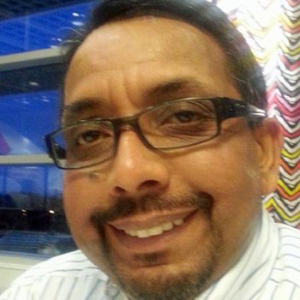
Victor Ho is used to cleaning up messes made by Canada's mainstream media.
The editor-in-chief of the Vancouver edition of Sing Tao Daily knows that whenever English-language media break a controversial story involving the Chinese community, cultural misunderstandings will likely undermine the report's quality.
Ho said he frequently has to run follow ups in his Chinese-language newspaper to clarify mainstream media reports on subjects of interest to the Chinese community.
English-language media outlets just don't understand Vancouver's Chinese community, he said. They don't know the community's politics, the divisions along class and regional lines and the diversity.
"They have some predetermined perception with the Chinese community, they cannot separate Mainland Chinese, Hong Kong Chinese and Taiwan Chinese," Ho said. "They have no idea where they came from and the differences between those three regions. No idea."
The issue goes beyond the Chinese community, Ho says. The public is poorly served when reports don't reflect the reality of life in a city as diverse as Vancouver.
Rattan Mall, "humble" editor of Metro Vancouver's Indo-Canadian Voice, echoed the concerns.
Mall said mainstream reporters don't often understand the diversity of opinions in the Indo-Canadian sphere and the great sensitivities around some issues.
"Unless you spend a lot of time in the communities and understand them, it's really hard to cover them," Mall said. "You can be either too soft on some issues or too hard on some issues."
Mainstream news media tend to go to the same sources for comment "again and again," he complained, assuming they represent the whole community.
"It is being projected as the opinion of everyone," he said. "Which is stupid."
A news service to break down barriers
George Abraham says the mainstream media has a big problem in reporting on ethnic communities, and it needs to be fixed.
Abraham is the founder and director of New Canadian Media, created to bridge the gap and help media improve their coverage of issues affecting Canada's increasingly diverse communities.
The online news publication specializing in immigrant issues will soon launch a subscription service to provide mainstream media with stories about immigrant communities written by the people with a deep understanding of them.
"There is a need for that kind of filling the gaps and building an understanding," Abraham said, noting one in five Canadians was born in another country. "The niche here [is] for publications and writing that is reflective of the point of view of immigrants to Canada."
Abraham hopes thoughtful, professional journalism about immigrant communities, written by people who understand the nuances and complexities, will help Canadians grasp their nation's diversity better and newcomers fit in to Canada more smoothly.
New Canadian Media has been offering its articles to mainstream news outlets at no charge for more than a year and hopes the subscription launch will bring support from major news organizations.
Abraham said government grants have helped pay for the project, but "obviously the idea is to go beyond that and make it a commercial service."
He was on his way to a meeting with a large Canadian media outlet in Toronto when he spoke to The Tyee.
There's a business argument to encourage mainstream media to embrace immigrant communities.
According to StatsCan, 4 million people in Vancouver, Toronto and Montreal don't speak French or English as their first language. About 40 per cent of residents in Vancouver and Toronto say their first language is something other than English or French.
It's a big potential market for media facing tough times.
Despite the large populations, immigrants are rarely seen in mainstream newsrooms, said Abraham. Even children of immigrants are rare.
That leaves news media without important knowledge about a large part of Canadian society, Abraham said.
He stressed it's hard for immigrants, even with credentials, to get a job in English-language media.
Abraham knows. He won a prestigious Nieman Fellowship at Harvard, and has an impressive resume with stints at publications like The Times of India. But he found it next to impossible to get a job as a journalist in Canada.
"My story is emblematic of the story of lots of immigrants in this country," he said.
The chasm between immigrant communities and mainstream media has also prevented immigrants from becoming more engaged in Canadian political and social life, Abraham said.
Newcomers don't consume much Canadian media, something Abraham hopes to change.
"There is still a generation that relies to a very large extent on news from back home," Abraham said. "Getting citizens more engaged, making them more aware of the media, making sure they have a stake in this country for themselves and their children is part of our long-term game plan." ![]()
Read more: Media














Tyee Commenting Guidelines
Comments that violate guidelines risk being deleted, and violations may result in a temporary or permanent user ban. Maintain the spirit of good conversation to stay in the discussion.
*Please note The Tyee is not a forum for spreading misinformation about COVID-19, denying its existence or minimizing its risk to public health.
Do:
Do not: